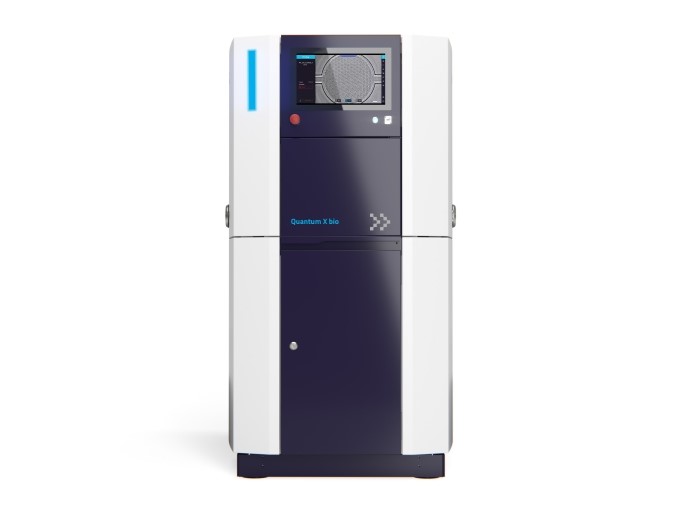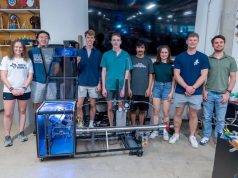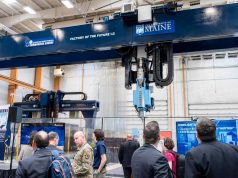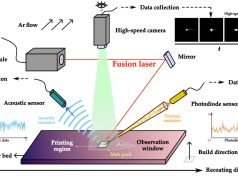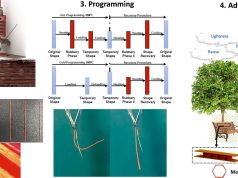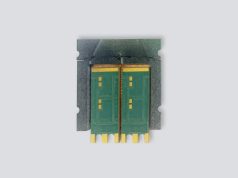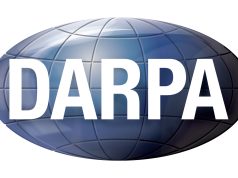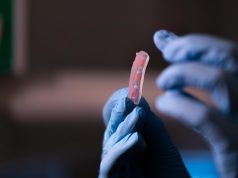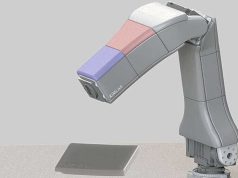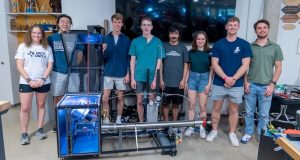Aston University is to receive a state-of-the-art Quantum X bio 3D printer from CELLINK and Nanoscribe following a £612,176 grant from the Biotechnology and Biological Sciences Research Council (BBSRC).
The project is led by Professor Rhein Parri from Aston Pharmacy School, who responded to the ALERT 2022 funding call for mid-scale life sciences equipment. The Quantum X bio printer, a joint product of BICO companies Nanoscribe and CELLINK, enables researchers to print cells in orientations similar to those found in organs such as the brain and liver. This capability is critical because the structures and orientations of cells, such as neurons in the brain, affect how they interact and connect.
The Quantum X bio uses 2-photon polymerization (2PP) to print 3D structures with extreme precision. In this process, a laser is focused on a light-sensitive liquid, which polymerizes into a solid material where the laser beam hits it. The laser moves three-dimensionally in the liquid to create the desired solid structure. Excess liquid is washed away and the structure can then be used. The Quantum X bio uses biocompatible polymers to print structures with features as small as 200 nm, opening up many new research opportunities.
The team that submitted the grant application alongside Professor Parri included Professor Roslyn Bill, Dr. Emma Shepherd, Dr. Philip Kitchen and Dr. John Simms from the School of Biosciences, and Dr. Craig Russell and Nathan Suray from the Aston Pharmacy School. Paul Gretton and Professor Edik Rafailov from the School of Engineering and Physics were also part of the team.
Professor Parri will lead a team to create 3D printed structures to support the growth of networks of human brain cells called astrocytes. The bioprinter will allow researchers to create more orderly networks like those in the brain and study the functions of astrocytes in brain functions such as sleep and synaptic plasticity, a mechanism important for memory and learning.
Professor Bill will investigate the blood-brain barrier, disruption of which can lead to inflammatory responses. Dr. Shepherd will print soft 3D models of a type of liver cell to study the biology of fenestration. Dr. Russell plans to develop a model for drug delivery to the eye, and Dr. Simms will study G protein-coupled receptors (GPCRs) that may open new avenues for drug discovery.
Professor Parri expects the Quantum X bio to foster research collaborations by bringing together scientific communities such as cell biology, organ-on-a-chip and microfluidics. Its installation will complement Aston University’s expertise in 3D printing at the Faculty of Engineering’s Advanced Prototype Facility.
Professor Parri said: “This new bioprinter will transform our ability at Aston University and the wider West Midlands to conduct 3D printing and make new discoveries in basic biological and tissue engineering research.”
Cecilia Edebo, CEO, CELLINK, said: “At the heart of our mission is the commitment to empower researchers with state-of-the-art bioprinting technologies, fostering new scientific breakthroughs. The acquisition of the Quantum X bio by Aston University marks a significant step towards advancing research in tissue engineering and drug discovery within the UK research landscape. Together with Nanoscribe, members of the BICO group, we are thrilled to continue our support to the research community and are excited to witness the incredible outcomes that will undoubtedly emerge from the use of this groundbreaking technology.”
The Quantum X bio, the first of its kind to be installed by Nanoscribe in the UK, will also be made available to the wider Midlands Innovation Universities research community. Aston University is preparing a controlled environment to house the printer and associated cell culture facilities. The bioprinter is due to be operational from April 2024.
Subscribe to our Newsletter
3DPResso is a weekly newsletter that links to the most exciting global stories from the 3D printing and additive manufacturing industry.



